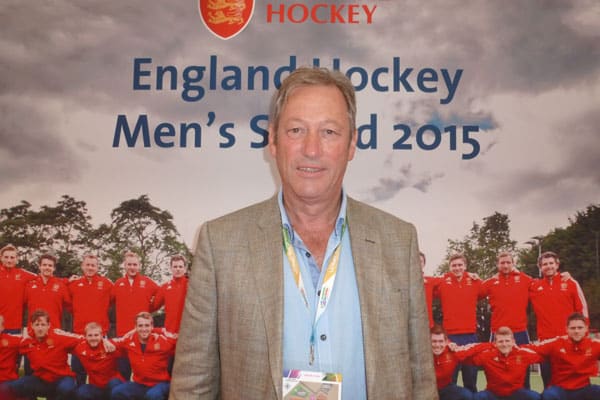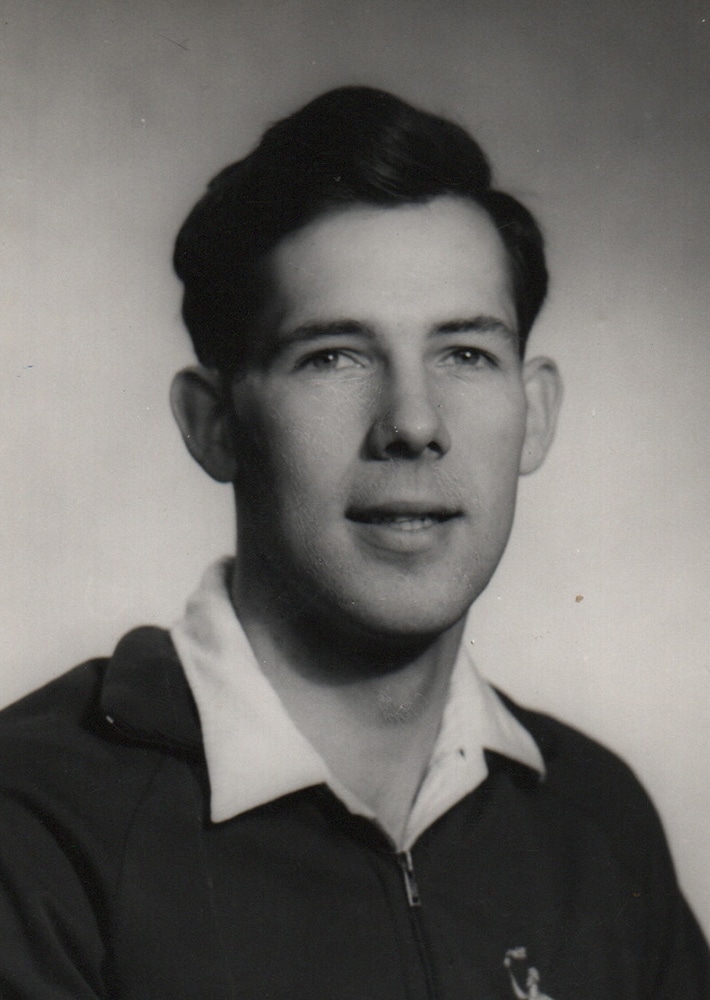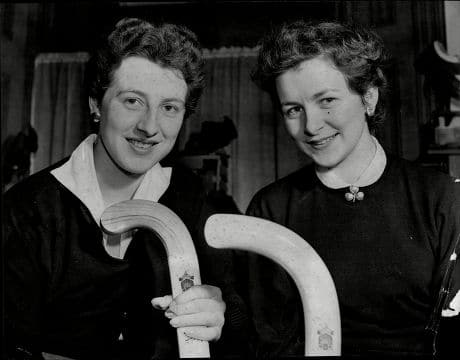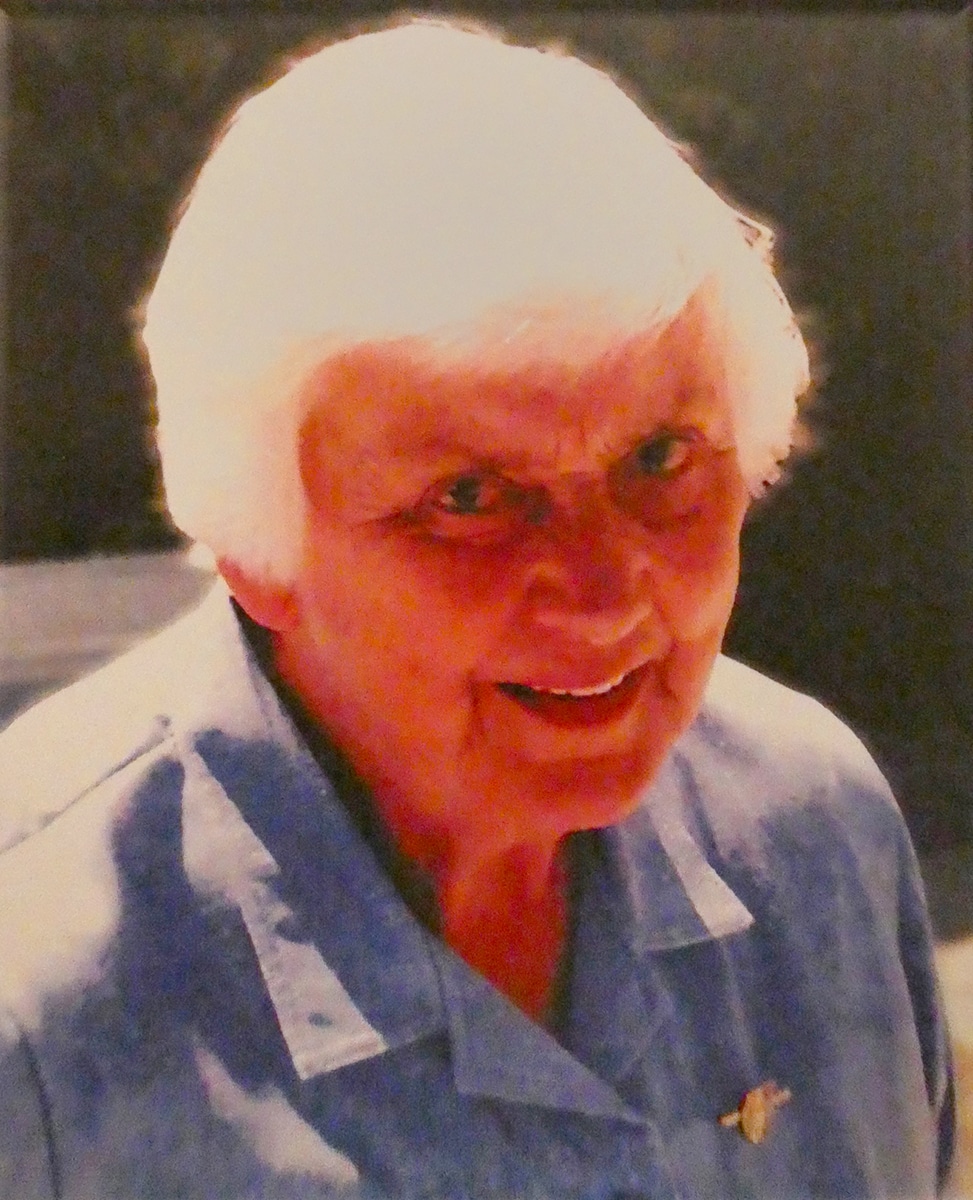 |
| Marie Weir scoring against England at The Oval cricket ground in 1950. Scotland lost 6-2. |
03.06.1926 – 27.02.2022
Dr Marie Weir (nee Jaffrey Smith) was a Scottish international hockey player in the late 1940s/early 1950s. She won a bronze medal at the post-war festival of women’s hockey in 1948 in Amsterdam. Marie gained more than 20 Scottish caps and played at Wembley Stadium.
She was appointed as National Coach to the Scottish women’s teams in 1971, at a time when Scottish hockey was graced by arguably the most talented group of players ever to represent the Scottish Women’s Hockey Association (SWHA).
Marie was one of Scotland’s most charismatic and inspirational hockey coaches. Her forward- thinking approach changed women’s hockey in Scotland for ever and resulted in ‘The Dream Team’ beating England at Wembley (2-1), on 11 March 1972 – a feat that had not been achieved in over thirty-nine years. The team went on to secure the ‘Triple Crown’.
What a breath of fresh air Marie was! Her ideas on diet, fitness, technique, tactics, team management and knowing the ‘whole person’, not only the hockey player, were all part of a totally new approach to the game. Meeting with football managers and studying their methods brought more knowledge about transitional play from defence to attack to produce a more fluid game. She worked tirelessly to introduce coaching programmes involving technical skills and tactical awareness, as well as involving the coach in team selection which made so much sense. She worked with the players week in, week out and knew better than anyone their strengths and weaknesses.
When Marie became involved in the early 1970s, the selection process was outdated and inappropriate for the modern game. It was a constant battle for her to progress to a squad system where the coach would select the team, as opposed to the selectors choosing a team and two reserves. She developed the game from the traditional formation to the possibilities of adaptable formations.
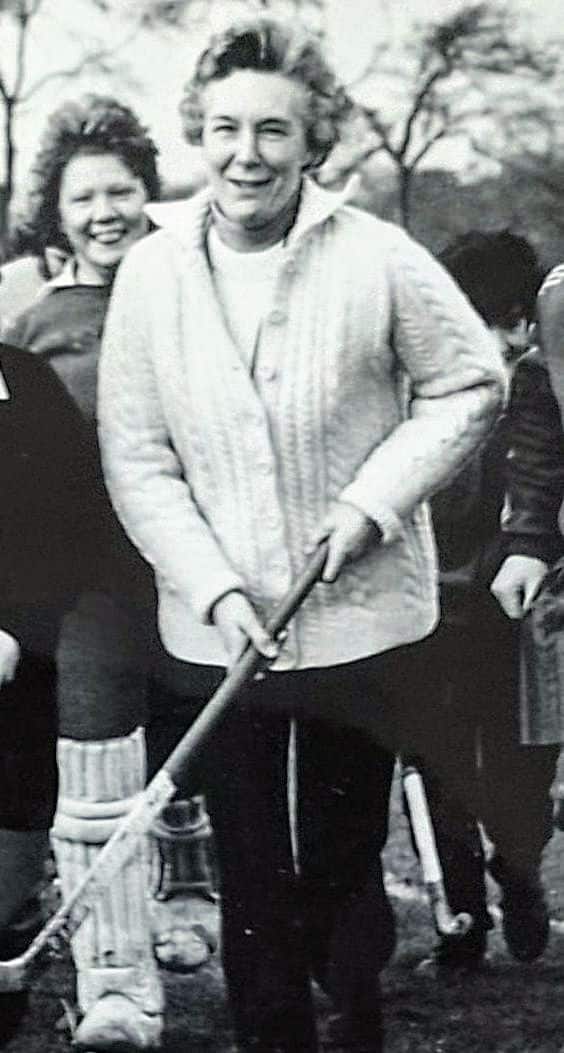 Marie was extremely competitive, and her ‘friendly authoritarian’ style of coaching was unique as she shared her knowledge and infectious enthusiasm in abundance. “YOU CAN AND YOU WILL” were words often repeated, and not to be ignored.
Marie was extremely competitive, and her ‘friendly authoritarian’ style of coaching was unique as she shared her knowledge and infectious enthusiasm in abundance. “YOU CAN AND YOU WILL” were words often repeated, and not to be ignored.
Marie gained insight into other aspects of the players’ lives. We had talented artists, musicians, mothers, and young players who were blended into a formidable unit in 1972, because she knew their families and she knew them as rounded individuals. Equally, the players who were initially coached by Marie were invited to her home in Dunfermline to share Marie’s other love, her family. Her beloved husband, Douglas, and five children all shared the highs and lows of Scottish women’s hockey and provided invaluable support throughout her coaching journey.
Marie was a woman on a mission, and I [Rae Nicholson] was fortunate and honoured to be on that mission with her. Becoming captain of the Scottish team after Wembley, I worked closely with Marie and could not have asked for a more supportive, inspiring coach. She gave so willingly of herself and was always at the end of the phone, not only for me but for any of the players who needed her.
A brief visit to the USA to coach youth players and then being invited to coach the Scottish Schoolgirls in the late 1970s (pictured) allowed Marie to lay the foundations for her progressive developmental approach from ‘nursery’ to the Scotland squad.
Not only was her time dedicated to coaching hockey, but she also wrote a comments column in The Scotsman newspaper on Scottish women’s hockey for ten years, (1960s-1970s), and published two very informative books on hockey coaching in the mid-1970s.
Another talent of a very gifted lady.
Rae Nicholson, Scotland captain 1973-76.
Other Obituaries
Read Marie Weir’s obituary in The Scotsman: Dr Marie Weir obituary | The Scotsman

